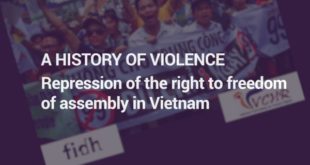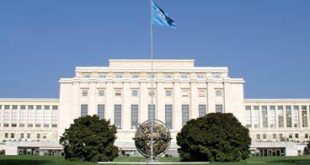 Civil Society is facing serious threats today across the globe. An offensive against the spread of democracy has spread and intensified. This ongoing backlash against democracy has been characterized by a pronounced shift from outright repression of democracy, human rights and civil society activists and groups to more subtle governmental efforts to restrict the space in which civil society organizations (“CSOs”) — especially democracy assistance groups — operate. Too many regimes still employ standard forms of repression, from activists’ imprisonment and organizational harassment to disappearances and executions. But in other states – principally, but not exclusively authoritarian or hybrid regimes – these standard techniques are often complemented or pre-empted by more sophisticated measures, including legal or quasi-legal obstacles such as barriers to entry to discourage or prevent the formation of organizations, and barriers to resources to restrict organizations’ ability to secure the resources required to carry out their activities.
Civil Society is facing serious threats today across the globe. An offensive against the spread of democracy has spread and intensified. This ongoing backlash against democracy has been characterized by a pronounced shift from outright repression of democracy, human rights and civil society activists and groups to more subtle governmental efforts to restrict the space in which civil society organizations (“CSOs”) — especially democracy assistance groups — operate. Too many regimes still employ standard forms of repression, from activists’ imprisonment and organizational harassment to disappearances and executions. But in other states – principally, but not exclusively authoritarian or hybrid regimes – these standard techniques are often complemented or pre-empted by more sophisticated measures, including legal or quasi-legal obstacles such as barriers to entry to discourage or prevent the formation of organizations, and barriers to resources to restrict organizations’ ability to secure the resources required to carry out their activities.
Governments have tried to justify and legitimize such obstacles as necessary to enhance accountability and transparency of non-governmental organizations (“NGOs”); to harmonize or coordinate NGO activities; to meet national security interests by countering terrorism or extremism; and/or in defense of national sovereignty against foreign influence in domestic affairs. This report exposes such justifications as rationalizations for repression, and, furthermore, as violations of international laws and conventions to which the states concerned are signatories.
The report articulates well-defined international principles protecting civil society, already embedded in international law, including norms and conventions that regulate and protect civil society from government intrusion. These principles include: the right of NGOs to entry (that is, the right of individuals to form and join NGOs); the right to operate to fulfill their legal purposes without state interference; the rights to free expression and to communication with domestic and international partners; the right to seek and secure resources, including the cross-border transfer of funds; and the state’s positive obligation to protect NGO rights.
The report concludes by calling upon:
l international organizations to endorse the report and the principles it identifies;
l civil society organizations to conduct national and régional discussions to mobilize support for the reform of légal frameworks governing them; and
l democracy assistance organizations to distribute and promote the report and its recommendations to its partners and grantees.
See the full report: Defending Civil Society
The report is also available in: Arabic – Chinese – French – Russian – Spanish
 Quê Me Quê Me: Action for democracy in Vietnam & Vietnam Committee on Human Rights
Quê Me Quê Me: Action for democracy in Vietnam & Vietnam Committee on Human Rights



